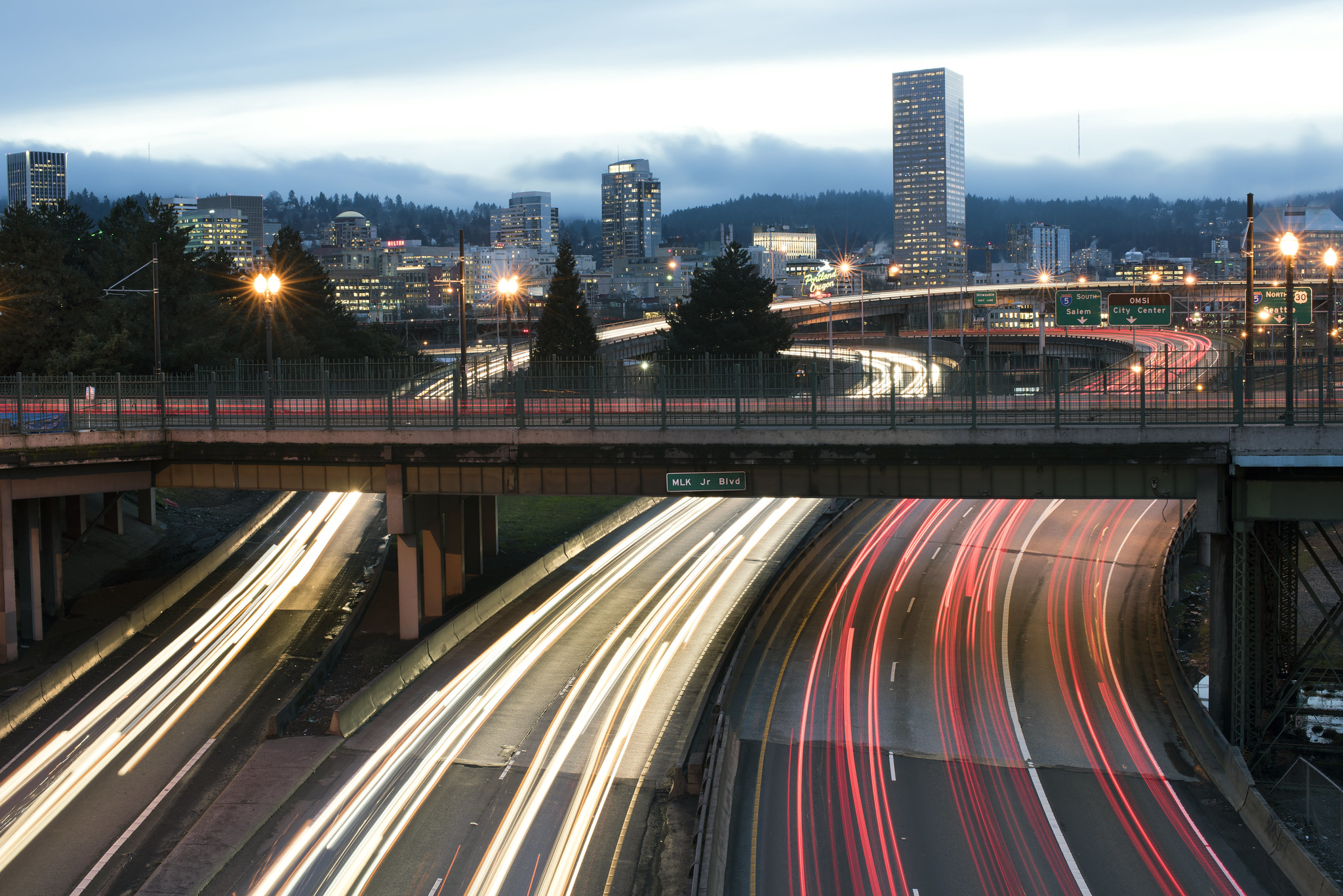
The Oregon Department of Transportation is looking for volunteer drivers in the Portland metro area to collect data over the next three months. They can earn up to $450 by plugging a device into their vehicle and answering questions.
Curtis Gregory Perry / Flickr
The state of Oregon is looking for volunteers to help figure out new ways to collect road taxes as more and more drivers go electric and use less gas.
The state currently has a first-in-the nation system, called OReGO, in which drivers elect to pay road taxes based on how many miles they drive, rather than through a gasoline tax levied at the pump.
Now the state wants to know whether the system can work within cities and counties to collect taxes for local roads and bridges.
The Oregon Department of Transportation is looking for volunteer drivers to collect data over the next three months. They can earn up to $450 by plugging a device into their vehicle, driving around the Portland area and answering questions.
“It’s going to be a pretty active research study,” said ODOT spokeswoman Michelle Godfrey. “We have a lot of requirements for people to participate and we are incentivizing people with some payments for activities they perform while doing the pilot.”
ODOT has struggled to get drivers to sign up for the OReGO program since it started in 2015. There’s little incentive for drivers who stand to pay the most in taxes to join. Experts think the system will have to be mandatory to work properly.
Volunteers for this pilot project don’t have to drive an electric or hybrid vehicle. Any gas-powered car that gets 20 mpg or more can be enrolled. The tax that drivers pay at the pump gets credited, and they then pay taxes on a per-mile-driven basis.
The pilot research project is looking at three basic ideas. One considers charging taxes based on the time of day someone is driving. Another considers where someone is driving and the third which sections of highway that are traveled.
Godfrey said the new system could be used for everything from tax collection to managing congestion.
“If it costs the driver more to travel on a very busy freeway during a certain time of day, if they’re charged more for that trip, they might think twice about making it,” she said. “Or they might consider alternative options (like) changing the time of day or changing the route.”
Many states face similar problems as electric and hybrid vehicles eat into gas tax receipts. Some are taking Oregon’s lead and considering charging by the mile. Some members of Congress are also exploring the approach.
Participants of this new study will have to take a survey to see if they’re eligible. Participant data is confidential. ODOT plans to report the data and feedback to the Oregon Legislature and the Federal Highway Administration.


